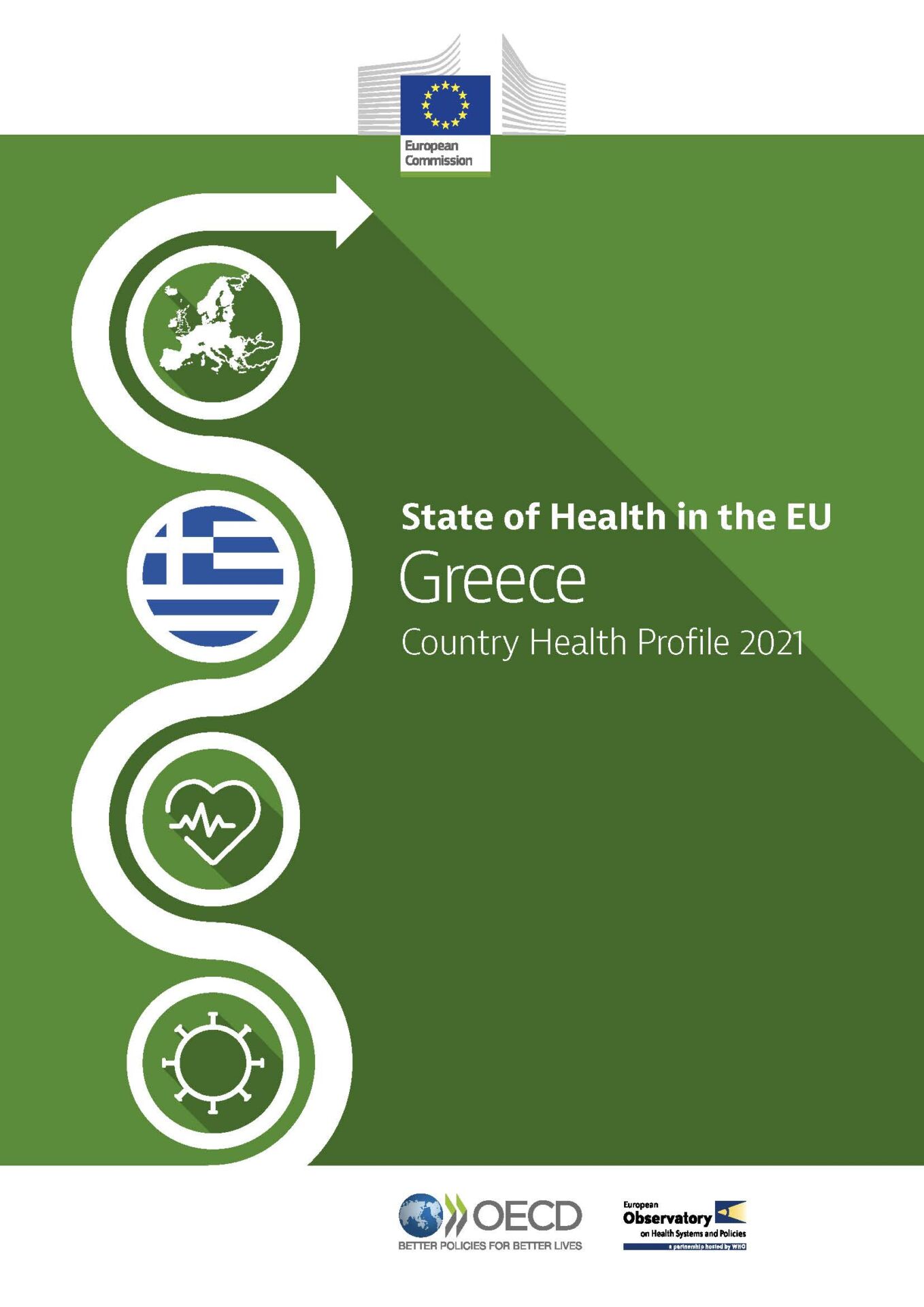Overall, the population in Greece enjoys good health, with a higher life expectancy than the European average. Extensive health system reforms have been ongoing since 2010, including the strengthening and expansion of publicly provided primary care services.
There has also been reinvigorated focus on prevention and tackling risk factors through a new national public health plan. Challenges remain in ensuring accessibility and affordability of care, particularly in the light of high out-of-pocket payments and the impacts of the pandemic.
Greece’s health status
Life expectancy in Greece in 2020 was about half a year higher than the EU average, although it fell temporarily by six months between 2019 and 2020 because of deaths due to Covid-19. The leading causes of death in 2018 were ischaemic heart disease, stroke and lung cancer. Prior to the pandemic, self-reported good health among the population was high, but Greek adults reported higher psychological distress than the EU average.
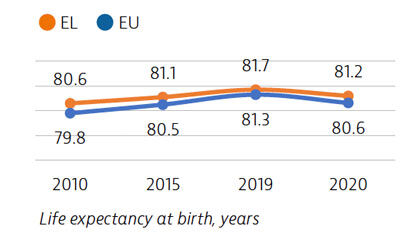
Risk factors
One in four adults is a daily smoker in Greece – one of the highest rates in the EU. Although tobacco smoking rates for 15-year-olds are lower than for adults, the growing popularity of e-cigarettes is a cause for concern. Adult obesity rates are equal to the EU average, but prevalence of childhood obesity has been growing steadily. In contrast, Greece has among the lowest binge drinking rates for adults in the EU.
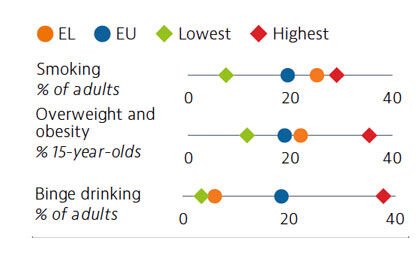
Finland’s health system
Per capita health expenditure in Greece (€1,603) continues to be well below the EU average. This equates to 7.8% of GDP, compared to 9.9% in the EU in 2019. Just under 60% of Greece’s health spending comes from public sources, while a very large share (35%) is paid out-of-pocket by households, mostly as co-payments for pharmaceuticals and direct payments for services outside the benefits package.
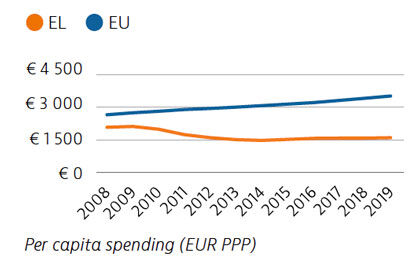
Effectiveness
Mortality from preventable causes has remained stable in recent years and is lower than the EU average. New public health and prevention initiatives may help to reduce rates in the future. Greece also has slightly lower mortality from treatable causes than the EU average. New care co-ordination initiatives aim to improve detection and timely treatment.
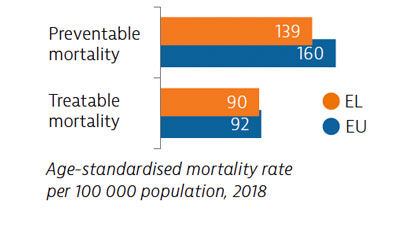
Accessibility
Despite declines since 2016, Greece recorded the second highest level of unmet needs for medical care before the Covid-19 pandemic. Around one in four people reported forgoing care during the first 12 months of the pandemic. Teleconsultations have been used to maintain access to services.
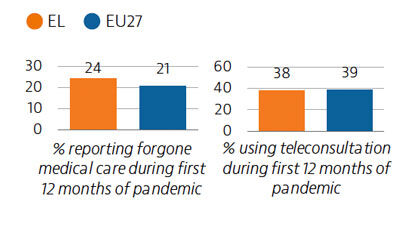
Resilience
To meet the demands presented by the Covid-19 crisis, Greece upscaled laboratory and intensive care unit bed capacities, along with the health workforce and disease surveillance. After a slow start, the vaccination rollout accelerated, with 55% of the population receiving two doses by the end of August 2021.
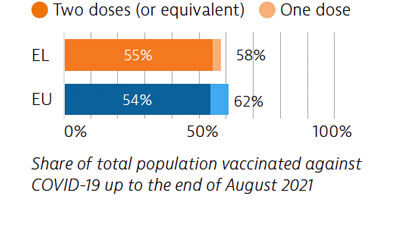
OECD/European Observatory on Health Systems and Policies (2021), Greece: Country Health Profile 2021, State of Health in the EU, OECD Publishing, Paris/European Observatory on Health Systems and Policies, Brussels.









